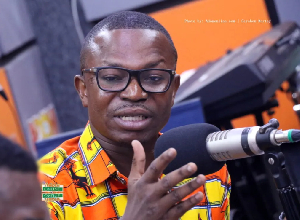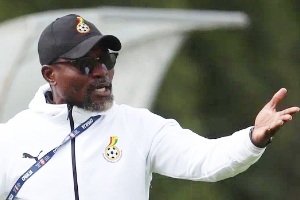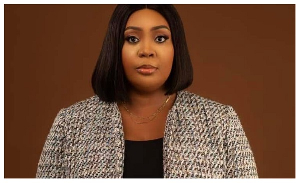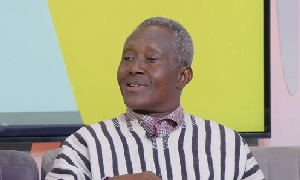The nature and extent of the damage that has been done to our landscape and water-bodies is such that I sometimes wonder whether an evil spell has been cast on some of our people so as to make them utterly stupid.
Videos and still pictures of rivers and streams that have been destroyed by galamsey have flooded the media – even before the media coalition against galamsey was inaugurated – so that no-one can say that he/she does not know what is really going on. And yet there are articulate people in this country who resort to a weird interpretation of words to try and persuade the public that galamsey is not illegal. Or that even if galamsey is illegal, “small-scale mining” is not illegal.Amazingly, this deliberate confusion is apparently fostered by no less an organisation than the Minerals Commission, which is the statutory body charged with regulating the mining industry in Ghana. A report in the Daily Guide of 21 April 2017 makes this very clear:
“The Minister [of Lands and Mineral Resources, Mr Peter Amewu] was upset with some top officials of the [Minerals] Commission, especially those at the Mines Inspectorate Directorate, whom he [accused of being] directly responsible for the galamsey menace. He was particularly shocked when officials of the Commission – the Chief Inspector of Mines, Obiri-Yeboah Twumasi, being one of them – were unable to tell him which mining companies had licences to operate in some particular areas..., “[This painted] a picture of such chief directors [as persons who operate] from their air-conditioned vehicles and offices without going to the field to know what’s actually happening. In view of that, Mr. Amewu ... promised to employ four mines inspectors in each mining district, nationwide, and give them motorbikes to help in the fight against illegal mining. ...
“It [also] emerged during the tour that the Environmental Protection Agency (EPA), which is supposed to assess the environmental impact of mining activities nationwide, is not monitoring the activities of small-scale miners. Mr. Amewu, who appeared visibly downhearted [at] the extent of damage caused to the environment in the districts [he] visited [accompanied by representatives of the media] had sought to find out why the Minerals Commission had not been able to ensure that mining activities are undertaken in a manner that does not cause destruction to the environment. But officials of the Commission argued that the EPAhad not been helping them over the years and that the Agency was only preoccupied with the big mining firms”.
In fact, the confusion at the Minerals Commission does not end at the fact that the Commission's officials do not know that there is nothing like licensed “medium-scale” mining in Ghana. The confusion also extends to so-called “small-scale mining”, for according to one of our best legal brains, Mr Ace Ankomah, no licence for any type of mining operation in Ghana can be considered legal until it [the licence]has been ratified by Parliament!
Mr Ankomah said that “Mining rights and leases granted to small-scale mining firms have not been ratified by Parliament since the coming into force of the 1992 Constitution, which renders all [[such] mining operations in the country illegal.... He, therefore, demanded that all licences or leases granted small-scale mining that had not been ratified by Parliament must stop immediately because they were all illegal.“Mr Ankomah made the disclosure when he led OccupyGhana to join a media coalition meeting in Accra ... [comprising major media organisations] to wage a crusade against the ‘galamsey’ menace.
[Mr Ankomah said]: Article 268 (1) of the 1992 Constitution states that: “Any transaction, contract or undertaking involving the grant of a right or concession by or on behalf of any person, including the Government of Ghana, to any other person or body of persons howsoever described, for the exploitation of any mineral, water or other natural resource of Ghana made or entered into after the coming into force of this Constitution shall be subject to ratification by Parliament.”
Buttressing his point, Mr Ankomah stated that NO small-scale mining licences had been taken to Parliament to be ratified, for which reason, he called for an immediate end to all such mining operations, subject to the ratification of mining licences. He said the fight against galamsey should not only belimited to persons engaged in ‘pick axe’ mining but should also include [all] persons mining without the proper licences.
Mr Ankomah declared QUOTE: “Even if the Minerals Commission has issued a licence, [so long as] Parliament has not ratified [it], it should be considered [to be] galamsey. Our demand is that all [mining activities relating to licences] or leases that have not been to Parliament, must stop immediately because they are all illegal.”
Mr Ankomah added that OccupyGhana was determined to take legal actions to have galamsey stopped.
This revelation by Mr Ace Ankomah is of the greatest importance, for it robs the “double-talkers” who shamelessly argue for the continuation of galamsey (because they claim it is not “illegal”) of any excuse to advocate the existence of the evil practice. Politicians, in particular, should be careful of what they say in support of galamsey. For in arguing (1) that galamsey provides a living for unemployed youngsters and (2) that some galamsey operations are “legal” because the operators have been given licences by the Minerals Commission. They are undermining the very Constitution of Ghana that enables politicians to rule the country – no less.
The pro-galamsey politicians cannot argue that because armed robbery – although illegal – can result in some unemployed people obtaining a livelihood, it is to be tolerated by society. Highwaymen and fraudsters also obtain money from their operations. But the state descends on them with an iron hand when they commit the crimes which they have adopted as a way of life.
Galamsey must be viewed in the same light. It is illegal. It is dangerous to those who operate it. And it is destroying our water-bodies, which means it is an act of genocide. For it is rendering the future populace of Ghana incapable of surviving in the land of their birth. Without water to drink. No-one would have the right to do that, even if it was legal. Anyway, only fools would wish to continue a practice that is visibly murderous, simply because they thought it was technically “legal”. Unfortunately, we do have quite a few of such murderous fools. Our Government should not pay the slightest attention to them.
By Cameron Duodu
Opinions of Saturday, 22 April 2017
Columnist: Cameron Duodu



















